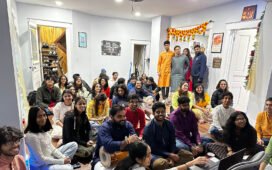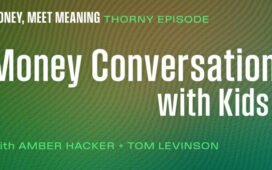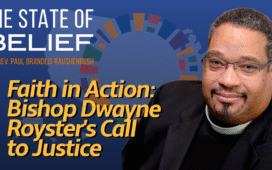(RNS) — The car-bombing of a fertility clinic in Palm Springs, California, has brought increased awareness of “antinatalism,” a movement whose proponents embrace the philosophy that human procreation is unjustifiable and wrong.
Guy Edward Bartkus, the 25-year-old suspect in the bombing, who apparently perished in it (in ironic, or perhaps intentional, consonance with the idea that the fewer people on earth, the better), left behind antinatalist writings and is suspected of having produced a 30-minute recording in which a speaker complains that “nobody got my consent to bring me here” and expresses his goal to “sterilize this planet of the disease of life.”
Antinatalists offer different reasons for their anti-childbearing conviction, including the impact that human beings have on the environment, population growth’s potential negative effect on geopolitics, the cost of raising children and, fundamentally, the prevention of the pain that is an inevitable part of life.
As Ana Ciani, 42, a mother of two, told today.com, she wishes she hadn’t brought her children into the world.
“I love them,” the logistics analyst insists. But, she continues, “I do regret the fact that I imposed life on them. I regret forcing them into this life in which I can’t guarantee anything except that I will love them forever and do my best to keep them safe.”
The first reactions that celebrators of procreation may have to such antinatalism sentiments are outrage and puzzlement.
Outrage, at what seems like a lack of appreciation of the wonders that are children, of the opportunity to raise and love our progeny, and to send new humans into the world to help make it a better place.
And puzzlement, over what may seem an incoherence in the antinatalists’ position. After all, wouldn’t their conviction guide them to humanely dispatch the children they may already have, to spare the world of their impact or them of future pain? Or to end their own lives for the same reasons?
Lawrence Anton, host of a podcast called “Antinatalism Around the World,” dismisses that latter point. “The bar you need to meet to not start a life,” he argues, “is much, much lower than the bar you need to meet to end a life.” Perhaps. But the higher bar may still, at least to a true antinatalist, inexorably beckon.
As a rabbi, though — and one whose life has been enriched beyond measure by the children with whom my wife and I have been blessed — I can nevertheless understand, if not accept, the antinatalists’ position, at least in theory.
Because, yes, living as sentient beings inherently involves enduring times of pain. King Solomon expressed that truism in Ecclesiastes 1:18: “For as wisdom grows, so does vexation; increased awareness means increased heartache.”
And the Talmud even concedes it is hard to justify the existence of humanity, prone as we humans are to messing things up. It tells of the famed schools of Shammai and Hillel having argued for two and a half years over “whether it would have been better for humankind not to have been created or whether its creation was for the best.”
And the schools’ conclusion, shockingly, was that man would have been better off left uncreated. But, they added trenchantly, now that we humans find ourselves here, we must live our lives the best we can.
A great 19th-century Jewish ethicist, Yisrael Lipkin (known as Rav Yisrael Salanter), explained that the two Talmudic schools of thought were obviously not sitting in judgment of their Creator. The rabbis’ argument, he averred, was simply whether humankind, with its limited purview, can possibly comprehend why its existence is worthwhile.
That comprehension may well elude us. We are not privy to the divine plan. But it is criminal to overlook the final conclusion of the Talmudists’ debate: that we are, in the end, understandably or not, divinely willed to be here and charged with shouldering the joys and challenges we have been handed, including procreation.
I see the natalist/antinatalist divide, ultimately, as an expression of the chasm separating those who believe in a higher purpose for human beings and those who deny it.
The deniers, like the philosophers of nihilism, see no point in existence. The believers see the deepest meaning in life, despite the experiences of adversity and grief that living entails.
Life, it has been said, is a tragedy punctuated with moments of joy. For some, that may be an apt description. For others, happily, it is bliss punctuated with moments of tragedy.
But for those of us who accept that we are on earth for a purpose, whether any particular life is best described as essentially tragic or essentially blissful, it is inherently infused with meaning. And the opportunity to offer life to others is not only justifiable, but an astounding privilege.
(Rabbi Avi Shafran writes widely in Jewish and general media and blogs at rabbiavishafran.com. The views expressed in this commentary do not necessarily reflect those of RNS.)







